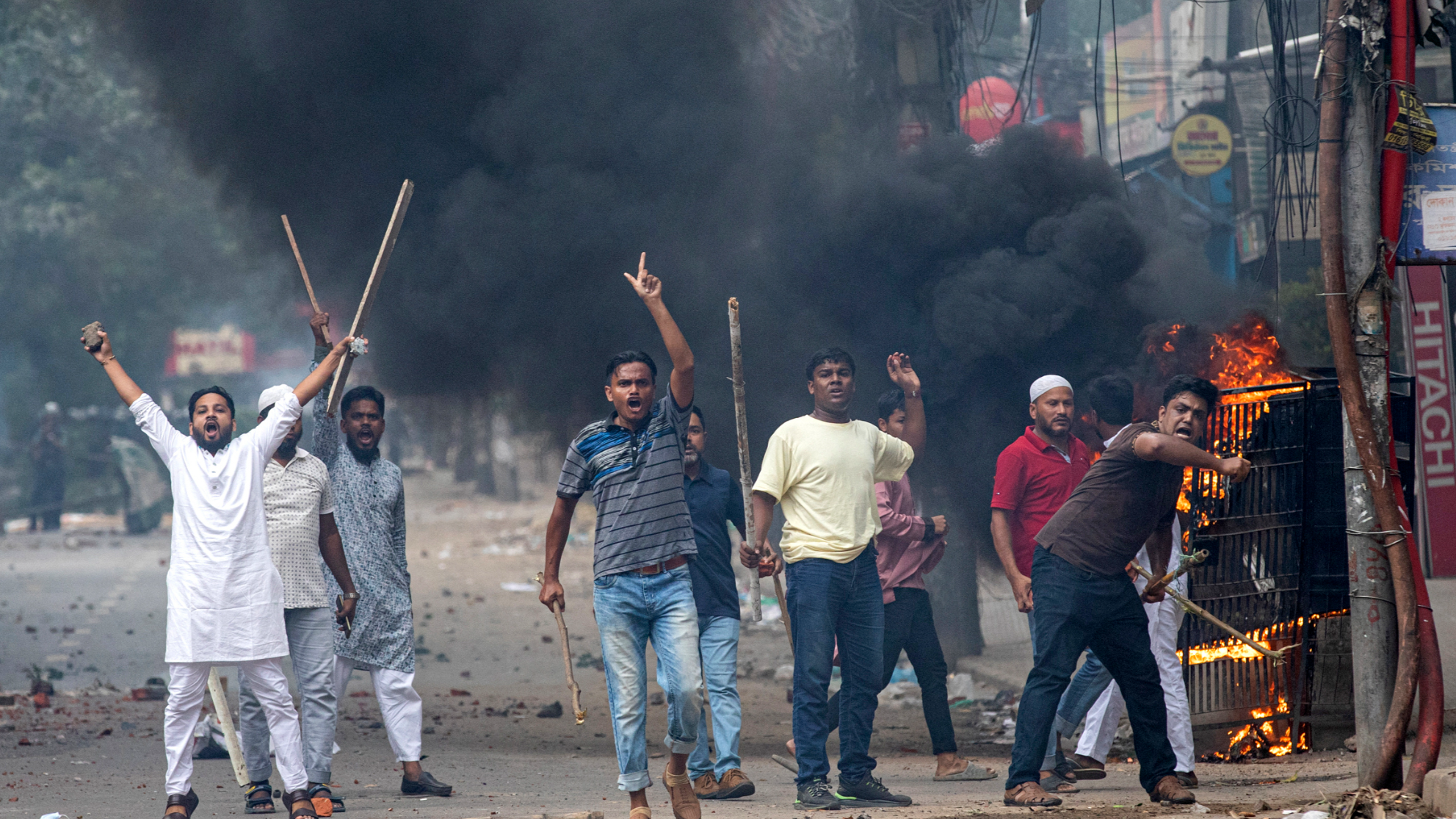
DHAKA - Bangladesh Prime Minister Sheikh Hasina imposed a nationwide curfew last week to quell protests, but anger against her government does not seem to have abated.
The protests, which started in universities and colleges earlier this month, quickly turned into a more widespread agitation against Hasina and her government.
Police fired rubber bullets, tear gas and lobbed sound grenades to disperse tens of thousands of protesters who came out on the streets. The government denied any live rounds were fired, but hospital sources said dead and injured people had wounds from bullets and shot gun pellets.
ALSO READ: Bangladesh partially restores telecommunication services as protests taper off
Badiul Alam Majumdar, the secretary of Shushahoner Jonno Nagorik, a Dhaka-based civil society platform for good governance, said the protests were "just the tip of the iceberg" and the use of force against students will breed further discontent against Hasina's government.
"People are being deprived of their basic rights, with a significant lack of human rights and justice. They can't cast their votes freely," he said. "This widespread frustration and anger among the people is evident in the protests."
Government official were not immediately available for comment. But officials have said previously no students were involved in arson or violence, and instead blamed opposition parties.

Hasina, 76, first led her Awami League party to victory in elections in 1996, serving one five-year term before regaining power in 2009, never to lose again.
She won a fourth straight term in office in January elections that were boycotted by the main opposition party and also marred by deadly protests.
While Hasina managed to overcome discontent and return the country towards some normalcy this week, it will not be "business as usual" going forward, said Zafar Sobhan, the editor of English daily Dhaka Tribune.
"This crisis shows that the government needs to listen to the young people of the country and take their concerns seriously," said Sobhan, adding that the quota issue served as a proxy for several other key issues.
"The government has been put on notice that enough is enough and it needs to address the legitimate concerns of the public," he said.
The United Nations, international rights groups, the US and Britain have criticized the use of force and asked Dhaka to uphold the right to peaceful protests.
Hasina said she was forced to impose the curfew to protect citizens and state property, blaming the main opposition Bangladesh Nationalist Party (BNP) and the Jamaat-e-Islami party for the violence, charges they denied.
ALSO READ: Bangladesh accepts court ruling to cut state job quotas after unrest, eases curfew
Tarique Rahman, the exiled acting chairman of BNP, said that Hasina was involved in "mass murder" during the protests.
The daughter of the country's founding father Sheikh Mujibur Rahman, who led Bangladesh's independence from Pakistan, Hasina has been credited with turning around the economy and the massive garments industry.
Experts have blamed the latest unrest on stagnant job growth in the private sector and high rates of youth unemployment that have made government jobs, with their regular wage hikes and other privileges, more attractive.
Failing to tame inflation, which currently hovers around 10 percent, and unemployment was not due to a dearth of options but rather due to a lack of political will, the experts said.
"One critical policy approach could have been to increase investment into the services sectors like health and education where it would be possible to create more decent jobs, especially for the educated and relatively young people," said Mohammad Abdur Razzaque, chairman of Dhaka think tank Research and Policy Integration for Development.


